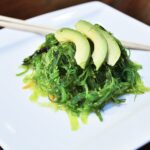
Top Health News — ScienceDaily Top stories featured on ScienceDaily’s Health & Medicine, Mind & Brain, and Living Well sections.
- Fat-rich fluid fuels immune failure in ovarian canceron May 9, 2025 at 7:42 pm
New research has uncovered how lipid-rich fluid in the abdomen, known as ascites, plays a central role in weakening the body’s immune response in advanced ovarian cancer. The findings offer new insights into immune suppression in ovarian cancer and open promising avenues for future immunotherapy approaches. Over 70% of patients with ovarian cancer are diagnosed at an advanced stage, often presenting with large volumes of ascites. This ascites fluid not only supports the spread of cancer throughout the abdominal cavity but also significantly impairs the body’s immune defenses. Understanding how ascites affects the immune system is important for developing better treatments that use the immune system to fight cancer.
- The origins of languageon May 9, 2025 at 7:42 pm
Wild chimpanzees alter the meaning of single calls when embedding them into diverse call combinations, mirroring linguistic operations in human language. Human language, however, allows an infinite generation of meaning by combining phonemes into words and words into sentences. This contrasts with the very few meaningful combinations reported in animals, leaving the mystery of human language evolution unresolved.
- Antibiotics from human use are contaminating rivers worldwide, study showson May 9, 2025 at 5:22 pm
Millions of kilometers of rivers around the world are carrying antibiotic pollution at levels high enough to promote drug resistance and harm aquatic life, a new study warns. The study estimated the scale of global river contamination from human antibiotics use. Researchers calculated that about 8,500 tons of antibiotics — nearly one-third of what people consume annually — end up in river systems around the world each year even after in many cases passing through wastewater systems.
- A more realistic look at DNA in actionon May 9, 2025 at 5:22 pm
By creating a more true-to-life representation of DNA’s environment, researchers have discovered that strand separation may take more mechanical force than the field previously believed.
- Novel, needle-free, live-attenuated influenza vaccines with broad protection against human and avian virus subtypeson May 9, 2025 at 4:22 pm
A research team has achieved a significant breakthrough in developing broadly protective, live-attenuated influenza vaccines (LAIV). These innovative LAIV platforms offer potential to develop universal influenza vaccines that induce a more robust immune response against various virus subtypes, including both human and avian strains.
- Researchers map 7,000-year-old genetic mutation that protects against HIVon May 9, 2025 at 4:22 pm
Modern HIV medicine is based on a common genetic mutation. Now, researchers have traced where and when the mutation arose — and how it protected our ancestors from ancient diseases.
- Colonic inflammation explains missing link between obesity and beta-cell proliferationon May 9, 2025 at 4:22 pm
How does obesity affect insulin production? Researchers are shining light on new stages of the ERK pathway.
- An enzyme as key to protein qualityon May 9, 2025 at 4:21 pm
In neurodegenerative diseases such as Alzheimer’s or Parkinson’s, proteins accumulate in the body’s cells, fold incorrectly and clump together to form larger aggregates. Normally, cells are able to remove these aggregates themselves. However, if a certain enzyme is blocked, this clean-up process no longer works. The new findings provide a better understanding of the molecular basis of these processes.
- Fatty liver in pregnancy may increase risk of preterm birthon May 9, 2025 at 4:21 pm
Pregnant women with metabolic dysfunction-associated steatotic liver disease (MASLD) have an increased risk of giving birth prematurely and the risk increase cannot be explained by obesity, according to a new study.
- Improving newborn genetic screeningon May 9, 2025 at 4:19 pm
More than a decade ago, researchers launched the BabySeq Project, a pilot program to return newborn genomic sequencing results to parents and measure the effects on newborn care. Today, over 30 international initiatives are exploring the expansion of newborn screening using genomic sequencing (NBSeq), but a new study highlights the substantial variability in gene selection among those programs.






